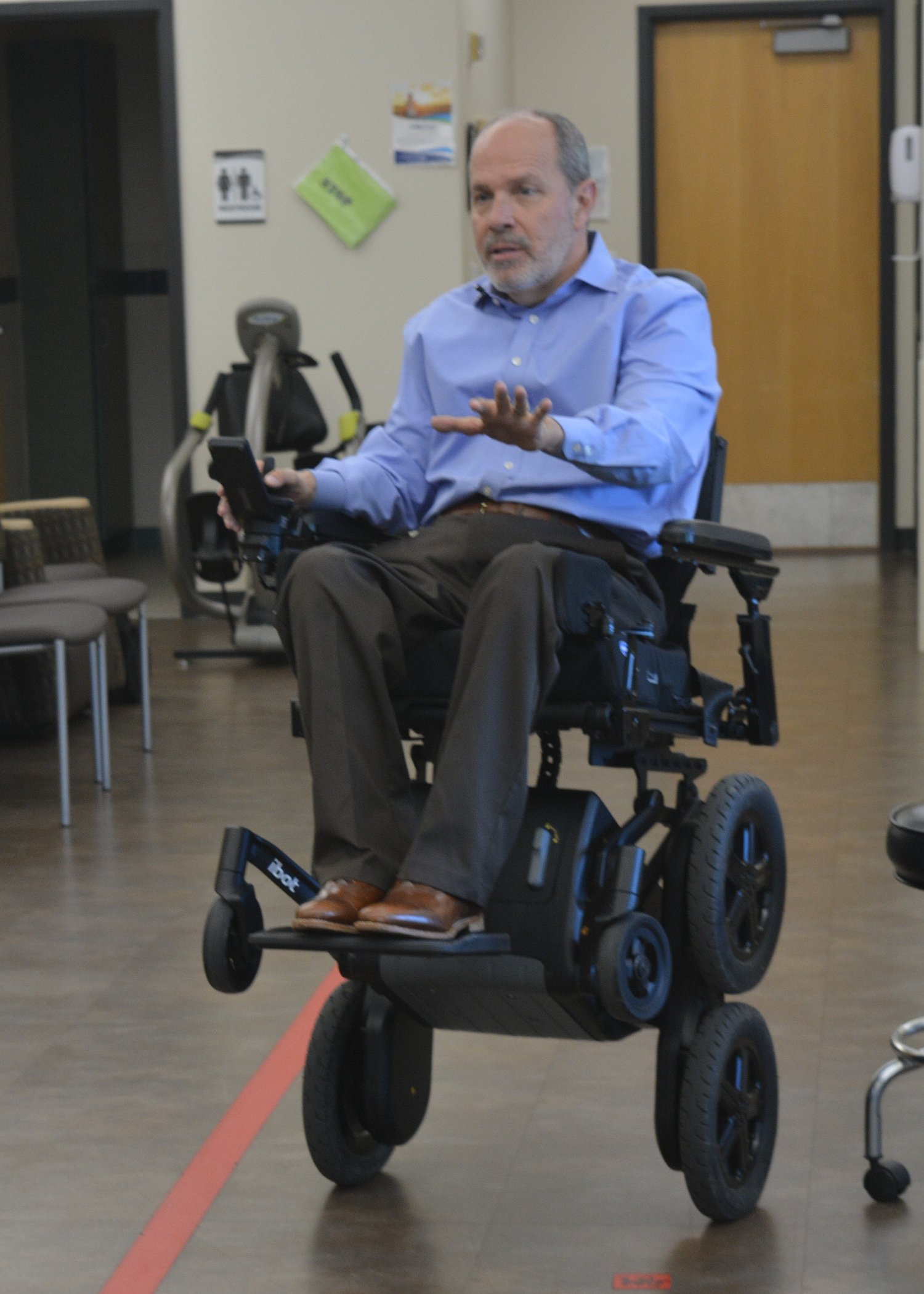Kootenai Health adds new iBOT power wheelchair
COEUR d'ALENE — After 15 years, Dr. Glen House once again experienced standing eye-level perspective from a power wheelchair Thursday. Kootenai Health debuted the new Mobius iBOT power wheelchair, becoming an iBOT center in the process.
"It opens up the world," House said.
House broke his neck in a skiing accident in 1990 at age 20. Within 18 months, he pivoted from biomedical science to medical school. Now, he works as a neurologist at Kootenai Health, drawing on his personal experience with paralysis to help patients navigate life after mobility changes.
"I realized there wasn't much I could do about it to change it, so I just said, 'What's next? Let's just pivot and go forward,'" House said.
House had used a similar powerchair 15 years ago in Colorado, but the model went off the market for over a decade. The new iBOT offers enhanced capabilities for mobility aid users.
"The ability to just stand up and go downstairs, there's so much maneuverability beyond a normal power chair," House explained.
Physical therapists demonstrated the chair's elevated balance mode and all-terrain capabilities at Kootenai Health's McGrane Center. The iBOT, priced between $38,000-$42,000, has been popular with Veterans Affairs providers. While expensive, it's not the priciest power wheelchair available.
Physical therapist Kara Purcelley outlined the evolution of power chairs, from basic models to the incorporation of Segway balance technology in the iBOT.
"This was something spearheaded by Dr. House to offer a different accessibility option for people. A standard wheelchair can only take you so many places," Purcelley said. She emphasized the importance of eye-level interaction for wheelchair users, both for practical purposes and advocacy.
Kootenai Health will be one of the few locations in the region offering the iBOT over the next two years. House lobbied for its introduction to North Idaho, citing outdoor accessibility as a key factor.



